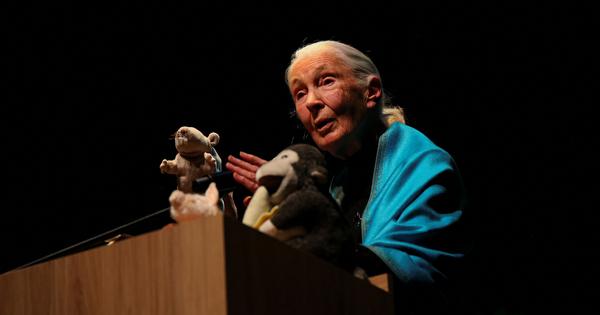Goodall’s legacy as a pioneer in wildlife conservation and primate research is widely recognized.
Jane Goodall, a prominent British wildlife conservationist and leading expert on primates, passed away on Wednesday morning at the age of 91, as confirmed by the Jane Goodall Institute, the non-profit organization she founded. She died of natural causes while in California on a speaking tour in the United States.
Born in 1934 in Bournemouth, England, Goodall developed a fascination for wildlife early in her life. This passion motivated her to relocate to Africa to study the behavior of chimpanzees, ultimately leading to her becoming a global advocate for ecological conservation. Her journey began with a toy gorilla gifted by her father, which sparked her interest in animals, further fueled by reading books like Tarzan and Dr. Dolittle.
In 1957, Goodall traveled to Kenya, where she met renowned palaeontologist Louis Leakey and his wife, archaeologist Mary Leakey. These encounters inspired her to focus her efforts on primatology. Under Leakey’s guidance, she established the Gombe Stream Chimpanzee Reserve in what is now Tanzania, where her groundbreaking research unveiled astonishing aspects of chimpanzee behavior. She discovered that these animals not only consumed meat but also engaged in warfare and utilized tools to extract termites from mounds—activities previously thought to be exclusive to humans.
Goodall’s work gained significant attention in 1965 when she was featured on the cover of National Geographic for an article detailing the emotional and social lives of primates. One chimpanzee, David Greybeard, became particularly famous due to his distinct silver streak of hair. Despite lacking an undergraduate degree and formal scientific training, Goodall earned a PhD from Cambridge University, reflecting her dedication to her research and the field.
Recognizing the interdependence of wildlife and their habitats, Goodall transitioned from studying chimpanzees to advocating for forest conservation. In 1977, she founded the Jane Goodall Institute to support research at Gombe Stream and promote conservation initiatives across Africa. Over the years, she traveled extensively, engaging with local officials and communities to raise awareness about environmental issues. In an interview with The Times in 2022, Goodall mentioned that prior to the Covid-19 pandemic, she had not slept in the same bed for over three weeks since 1986, highlighting her commitment to her cause.
Just a week before her passing, Goodall participated in an interview in New York and was scheduled to speak at a sold-out event in California on October 3. Her contributions to wildlife conservation and primate research were recognized by various entities, including the United Nations, which remarked on her tireless efforts for the planet and its inhabitants, stating that she left behind an extraordinary legacy for both humanity and nature. Former United States President Barack Obama also acknowledged Goodall’s groundbreaking work, noting its influence on future generations of women in science.








